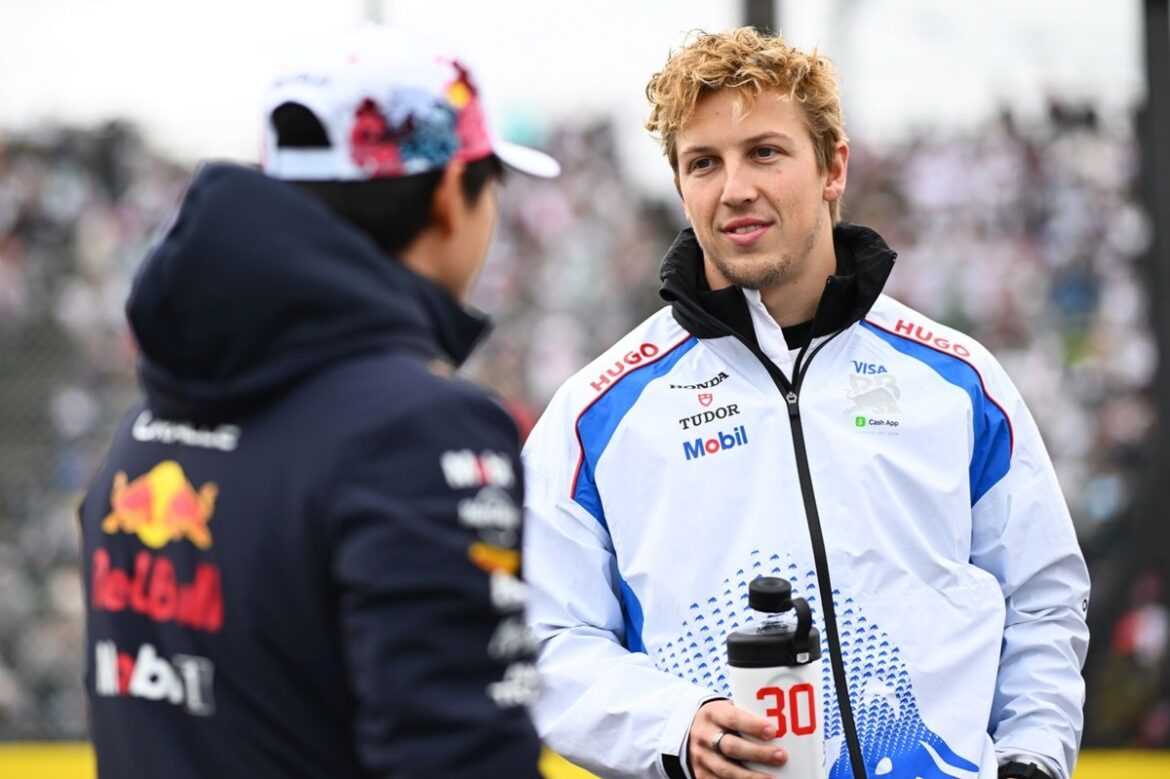In the competitive world of Formula 1, the dynamics within teams can often be as fascinating as the races themselves. Laurent Mekies, the team principal of Racing Bulls, recently shared insights regarding the team’s evolving driver lineup and the implications of Yuki Tsunoda’s transition to Red Bull Racing. Despite the challenges that come with fluctuating driver rosters, Mekies views the situation as a positive development for his team.
Racing Bulls has set ambitious goals to enhance its performance in the challenging upper midfield of Formula 1. The 2025 season has presented its share of hurdles, with strategic decisions occasionally leading to missed opportunities. Nevertheless, the team has developed a car that is competitive enough to contend for points, a task made increasingly difficult by the tight margins that define battles with rivals such as Williams, Haas, Alpine, and Aston Martin.
The reshuffling of drivers within the Red Bull ecosystem has added a layer of complexity to Racing Bulls’ objectives. At the beginning of the year, the team lost Liam Lawson, only to see Tsunoda take his place after just two races. Mekies acknowledged this driver rotation during his conversation on the “James Allen on F1” podcast. He noted that while cultivating talent for Red Bull can sometimes conflict with Racing Bulls’ immediate performance targets, the ability to promote drivers like Lawson and Tsunoda is ultimately a mark of success for the team.
“Our primary goal is to be competitive,” Mekies stated. “Alongside that, we aim to contribute to the development of drivers within the Red Bull family.” He expressed satisfaction that both Lawson and Tsunoda had demonstrated the capability to attract attention from Red Bull Racing, indicating that their potential promotions reflect positively on Racing Bulls.
Mekies highlighted Tsunoda’s remarkable growth over the past year and a half, pointing out that while many drivers experience a learning curve in their initial seasons, Tsunoda’s development in his fourth and fifth years has been exceptional. “This is a significant moment for Yuki,” Mekies continued. “He has earned this opportunity, and it’s a proud moment for our team to witness his advancement.”
With Tsunoda’s departure, Lawson has returned to Racing Bulls for a third stint, facing the formidable challenge of competing against Isack Hadjar, a promising talent who recently finished as the runner-up in Formula 2. Hadjar has quickly adapted to the demands of Formula 1, making the competition even tougher for Lawson.
In a recent qualifying session in Saudi Arabia, Lawson managed to outpace Hadjar for the first time, an achievement that Hadjar acknowledged as a result of Lawson’s consistent push throughout the weekend. Despite this positive moment, Lawson still has work ahead to maintain his pace during races.
Mekies remains confident in Lawson’s abilities, stating, “He is still the talented driver we had a few months ago. We understand how challenging it can be at the front of the grid, and we believe the speed is there.” He emphasized the support that Racing Bulls provides to Lawson, highlighting his ability to learn and improve with the team. Observations from recent races in Japan, Bahrain, and Jeddah indicate that Lawson has been making noticeable progress, with Mekies noting that he was just a fraction away from making it into Q3 in Jeddah.
The competitive landscape of Formula 1 is constantly evolving, and teams must adapt to the changing circumstances. For Racing Bulls, balancing the development of drivers for Red Bull while pursuing their performance targets is a complex task. However, with the right strategies and support, the team aims to excel in this challenging environment.
Mekies’ approach reflects a broader philosophy within the world of motorsport, where nurturing talent is as crucial as achieving immediate success. The ability to develop drivers who can compete at the highest levels is not only beneficial for the individual careers of those drivers but also enhances the reputation and competitiveness of the team as a whole.
As the season progresses, Racing Bulls will continue to navigate the challenges posed by both on-track performance and the dynamics of their driver lineup. The interplay between nurturing talent and achieving competitive results is a delicate balance that Mekies and his team are working to master.
In conclusion, the journey of Racing Bulls is emblematic of the broader challenges faced in Formula 1. The commitment to developing drivers while striving for competitive excellence is a testament to the team’s dedication to both its current lineup and the future of the sport. As they move forward, Racing Bulls will be focused on refining their strategies and enhancing their performance, all while contributing to the larger Red Bull family. With talented individuals like Lawson and Tsunoda leading the way, the future looks promising for Racing Bulls in the fast-paced world of Formula 1.
